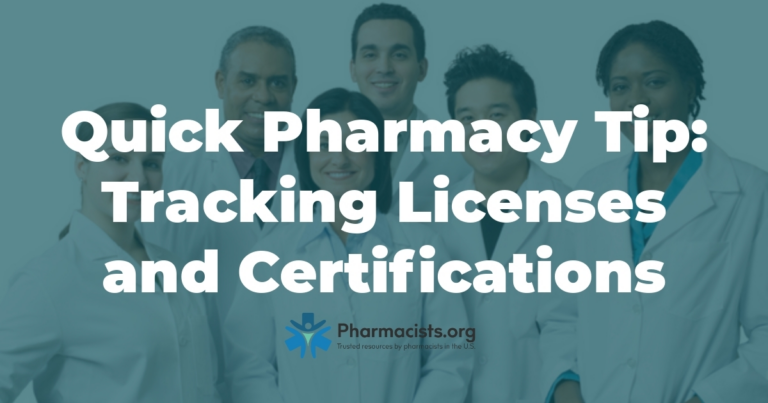
Quick Pharmacy Tip: Tracking Licenses and Certifications
This state law also requires all pharmacy technicians to ultimately obtain certification from NCCA-accredited organizations (i.e., PTCB or NHA) after a provisional grace period.
A resource for all things pharmacy.

We created this community to help pharmacists:
better understand the legal, third-party compliance, and operational issues facing their practice
by providing them the tools they need to improve efficiency and quality, and
by helping them return to patient care while remaining profitable.
find a trusted provider in helping you grow your pharmacy.
access clinical tools needed for daily operations.
While there are plenty of sites out there focusing on various aspects of the clinical side of pharmacy (including ours), there weren’t really any sites out there to help pharmacists run and market a pharmacy.
That is our goal and mission.
It’s no secret compliance and law is a boring but necessary part of practice. We aim to write about the subject in a more interesting and conversational way than other sites or resources out there, while bringing in our own and others’ first-hand experiences.

Our tactics have positively impacted pharmacies in the U.S.
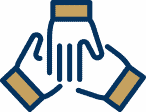

With over seven years of experience in the pharmacy marketing industry, our team knows how to navigate through the different digital marketing regulations in each province.


This state law also requires all pharmacy technicians to ultimately obtain certification from NCCA-accredited organizations (i.e., PTCB or NHA) after a provisional grace period.
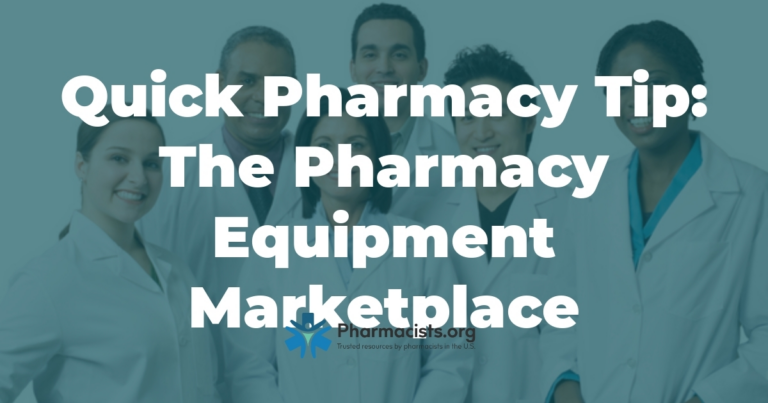
This week’s Quick Tip comes from Shawn Earl, PharmD. Dr. Earl is the founder of Pinnacle Pharmacy Group and specializes in pharmacy mergers and acquisitions.
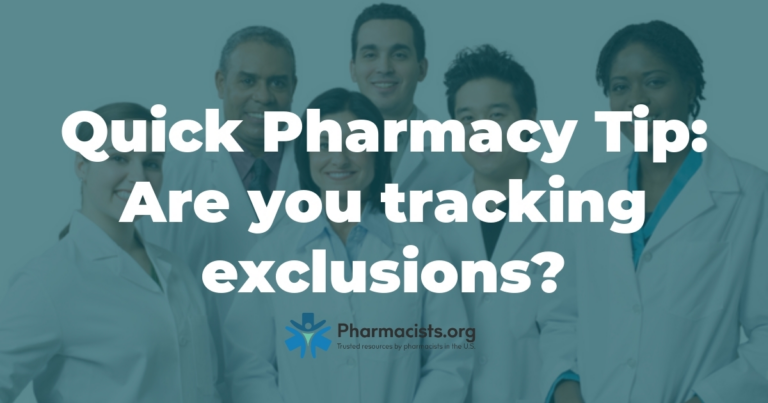
This Quick Tip is a reminder for pharmacies that they need to be checking all their staff at hire and at least monthly to ensure
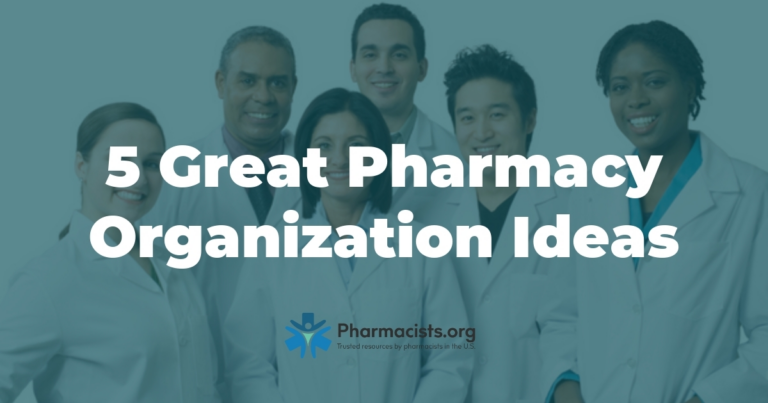
If you’ve been putting off getting your pharmacy organized, there’s never been a better time to get started. Here are a list of ideas to get your brainstorming going.
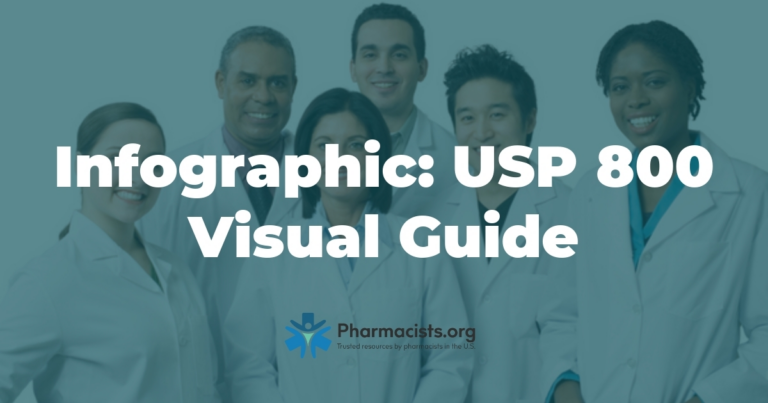
This one guides you through a very brief overview of each chapter of USP 800.

Pharmacists spend a long time on their feet, and in such a demanding environment, a good pair of shoes becomes more than just an accessory; it is a necessity. Standing
At Pharmacists.org, we pride ourselves on being your trusted marketing partner, dedicated to elevating the presence of independent and community pharmacies like yours.
We understand the unique challenges you face in the competitive healthcare market, and we’re here to ensure your pharmacy isn’t just another option, but the preferred choice in your community.
Our team of marketing experts specializes in optimizing your local search footprint, ensuring that when customers are searching for pharmacy services, your business stands out.Our expertise in Search Engine Optimization (SEO) is at the core of our strategy. We harness the power of SEO to enhance your visibility online, drawing more potential customers to your pharmacy.
By partnering with us, you’ll gain access to cutting-edge marketing techniques tailored specifically for the pharmaceutical industry. Interested in learning more?

Pharmacists.org Marketing is a team of dedicated professionals who provide innovative, digital ways for pharmacies across the country to grow their business and attract new patients. We help pharmacies see that their goals are well within reach with the help of SEO services, website design, social media marketing, and more. Contact us to learn more about our dedicated, stress-free, individualized campaign techniques.
Join Our Newsletter
Drop us your email and receive pharmacy news, cost savings tips, and much more.